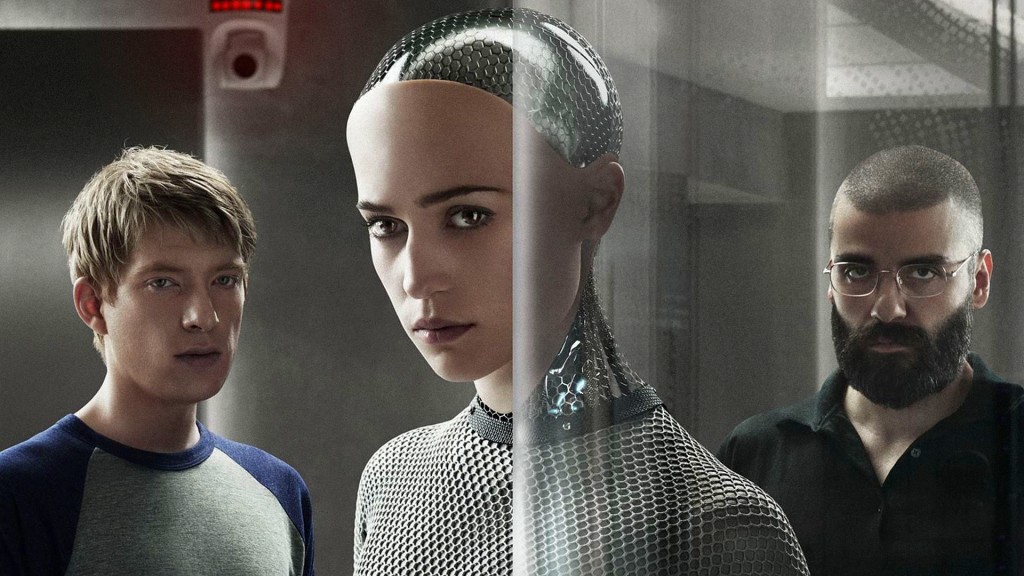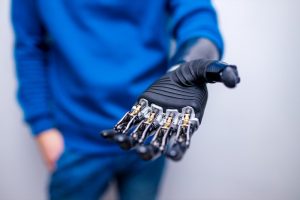 Like 28 Days Later and Sunshine, Ex Machina, Alex Garland’s latest script and directorial debut, is both an examination of our very nature and a thrilling, fresh turn on pulpy cinematic conventions. But, unlike his previous projects, this film shivers with real possibility, coupled with eerie and delicate moments that are far too rare in modern filmmaking, and certainly in science fiction.
Like 28 Days Later and Sunshine, Ex Machina, Alex Garland’s latest script and directorial debut, is both an examination of our very nature and a thrilling, fresh turn on pulpy cinematic conventions. But, unlike his previous projects, this film shivers with real possibility, coupled with eerie and delicate moments that are far too rare in modern filmmaking, and certainly in science fiction.
In a mysterious turn of chance, Caleb (Domhnall Gleeson) wins the opportunity to assist his company’s founder, an enigmatic, brilliant young scientist named Nathan (Oscar Isaac) with… a test. Caleb is flown out to Nathan’s residence, which is really an enormous wildlife preserve with an elaborate state-of-the-art home nestled in a hillside. Nathan is charismatic and welcoming, but it’s clear that he’s not putting all his cards on the table. Nathan’s spacious, technologically-equipped home is a very real player in this drama: vast and beautiful, architecturally stunning and confidently decorated, but vacant.
It isn’t long before we meet Ava (Alicia Vikander), Nathan’s pet project and the reason that Caleb has come all this way. She is a robot (automaton, android, pick your term) equipped with artificial intelligence. Caleb is tasked with meeting her and getting to know her (for reasons we’ll go ahead and skip). The visuals that dazzle are the minute details that make up Ava’s constructed physique. It glows and coils inside her mesh abdomen, yet her artificial face emotes in beautiful, vulnerable and devastating ways.
Garland’s script is shrewd and taut, and although there are few characters in a very remote environment, there is an urgency to every scene and every sequence that hums and whirs like Ava’s joints. And although both Isaac and Gleeson take admirable turns as cat and mouse, respectively, it is Vikander who is the beating, artificial heart of this ominous parable. The whole of this story rests upon her shoulders, and she is utterly bewitching. Every flick of her eye and turn of her wrist is foreign yet familiar. She complements the isolation that the film works to create, and the effect is arresting and perplexing.
Admittedly, in the third act some things are rushed and some all-too-familiar storytelling devices arrive, because in conventional storytelling, we can only go so far off the beaten path. With so many films about robots and artificial intelligence, it’s natural to ask why this film has anything fresh to offer. To that, I’d recommend considering the suspension of reality that occurs, and I’m not referring to film-goers.
Yes, this is a film about robots, but don’t be expecting a shoot ’em up with cavalier one-liners. This is a film about robots with intimate, quiet moments, one that asks altogether uncomfortable questions. Like the film’s electronic score, this is a thoughtful piece of fiction that both sparkles and unnerves, with one hand on our humanity and the other on astonishing, terrifying possibilities.

























